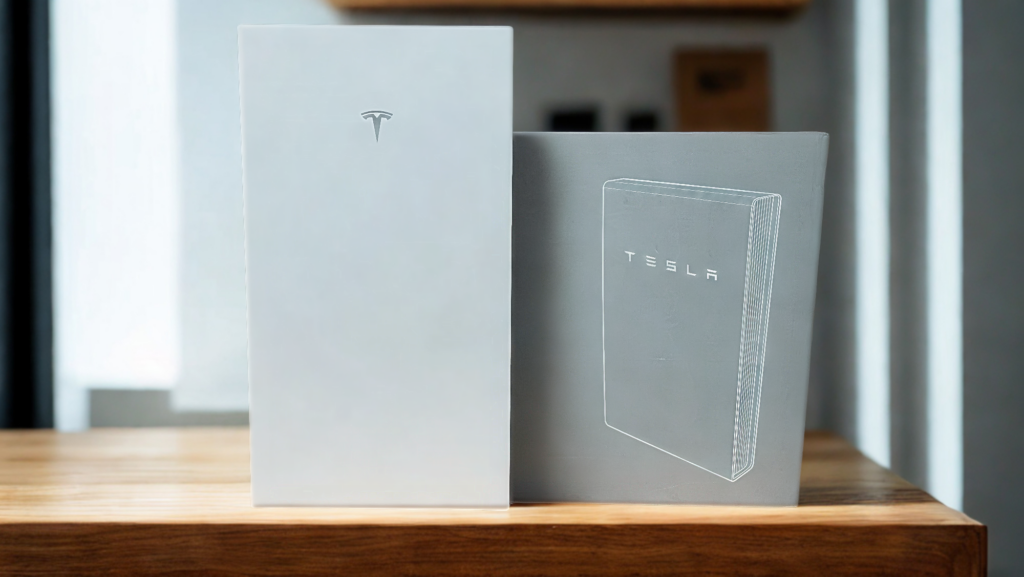What Are the Different Types of Solar Batteries?
What Are the Different Types of Solar Batteries?
Switching to solar energy is one of the smartest decisions you can make for your home, your wallet, and the planet. But while solar panels often take the spotlight, understanding the types of solar batteries available is equally important for optimizing efficiency and ensuring long-term energy storage. Solar batteries store the excess energy generated by your solar panels, so you can use it during cloudy days, at night, or even during power outages. Choosing the right battery can significantly enhance the performance and reliability of your solar system.
This article explains the different types of solar batteries, their benefits, and how to choose the best one for your specific needs.
What Are Solar Batteries?
Solar batteries are energy storage devices that store unused solar energy for later use. By pairing a solar system with batteries, you gain greater energy independence by reducing your reliance on the traditional grid. This becomes especially useful during periods of high electricity demand or when utility rates are at their peak.
The growing demand for solar batteries is fueled by increasing electricity prices, a stronger emphasis on eco-conscious living, and homeowners’ desire to maintain energy security in the face of unpredictable weather patterns and outages.
Key Benefits of Solar Batteries:
- Energy Independence: Reduce your reliance on the grid by storing your excess solar energy.
- Backup Power: Keep your home running during power outages or emergencies.
- Cost Savings: Avoid high utility charges during peak hours by using stored energy.
- Eco-Friendly: Reduce your carbon footprint by utilizing renewable energy efficiently.
Now that we’ve covered the purpose of solar batteries, let’s explore their various types.
How do Solar Batteries even work?
Solar batteries store excess energy from your solar panels for later use. When your panels generate more electricity than your home needs, the surplus goes into the battery instead of the grid. This stored energy can be used at night or on cloudy days when your panels aren’t producing power.
Lithium-ion solar batteries are popular for their efficiency, long lifespan, and low maintenance compared to lead-acid batteries. Lightweight and compact, they handle frequent charge cycles and provide reliable power, even during outages or at night.
How is Solar Battery Energy Stored?
The energy stored in the battery starts out as direct current (DC), generated by the solar panels. An inverter then converts this DC energy into alternating current (AC), so it can easily power your home’s appliances. On top of that, many lithium-ion solar batteries come with smart monitoring systems, letting you keep an eye on your energy usage and storage. This makes them even more efficient and useful in a solar-powered setup.
By incorporating solar batteries into your energy system, you can maximize the efficiency of your solar panels while ensuring a consistent and sustainable power supply.
Types of Solar Batteries
1. Lithium-Ion Batteries
Lithium-ion batteries are the most popular type of solar battery on the market today, and for good reason. Known for their high energy density, lightweight design, and long lifespan, they’ve become the go-to choice for residential and commercial solar systems.

Key Features:
- Efficiency: Lithium-ion batteries typically offer an energy efficiency rate of 90–95%, meaning very little energy is lost during storage and retrieval.
- Cycle Life: With a lifespan of 10–15 years or more, these batteries can endure thousands of charge cycles.
- Compact Design: They’re sleek and space-saving, making them ideal for residential installations.
Popular Use Case:
If you’re powering a home with limited space for a large battery bank or want a long-lasting, highly efficient option, lithium-ion is the way to go.
2. Lead-Acid Batteries
Lead-acid batteries are one of the oldest and most affordable energy storage technologies. While they may not have the advanced features of lithium-ion options, they remain a viable choice for homeowners seeking a cost-effective solution.
Key Features:
- Cost-Effective: They have low upfront costs, making them accessible for budget-conscious buyers.
- Reliable: Well-suited for off-grid setups where cost efficiency takes precedence over advanced features.
- Shorter Lifespan: Lead-acid batteries typically last 3–5 years, depending on usage.
Popular Use Case:
Perfect for off-grid solar systems where upfront costs and simplicity are more important than lifespan or energy efficiency.
3. Nickel-Cadmium Batteries

Nickel-cadmium (Ni-Cd) batteries are primarily used in industrial and remote applications. Known for their durability and ability to perform well in extreme temperatures, they are preferred by those operating in harsh environments.
Popular Use Case:
Ideal for use in remote locations or industrial environments where durability is more critical than cost or energy efficiency.
4. Flow Batteries
Flow batteries are an emerging technology that uses liquid electrolytes to store energy, offering increased storage capacity and scalability.
Key Features:
- Scalability: You can expand storage capacity by simply adding more electrolytes.
- Long Cycle Life: Can endure more charge cycles compared to traditional batteries.
- Low Energy Density: Requires more space compared to lithium-ion or lead-acid batteries.
Popular Use Case:
Best suited for large-scale installations or businesses that prioritize long-term scalability and high durability.
How to Choose the Right Solar Battery
Picking the right solar battery depends on several factors, including your energy needs, budget, and goals. Here’s what to consider:
1. Evaluate Your Solar Energy Needs
Start by analyzing your average energy consumption to determine how much storage capacity you’ll require. Look at your monthly electricity bills and consider factors such as:
- Number of appliances you plan to run.
- Energy requirements during power outages.
- The amount of surplus energy your solar panel system generates.
2. Understand Your ROI Goals for Your Home
- Seeking emergency backup power? Consider batteries with a high discharge rate.
- Want to maximize energy efficiency? Opt for lithium-ion batteries.
- Working with a limited budget? Lead-acid batteries could be a practical solution.
3. Home Space and Capacity
Consider how much space you have for a battery bank. While lithium-ion batteries are compact, options like flow batteries require significantly more space.
4. Cycle Life and Warranty
Check for batteries that offer a long cycle life and come with robust warranties. This ensures you’ll get the maximum ROI from your investment.
5. Compatibility with Your Solar System
Consult with your solar installer to ensure your battery type is compatible with your existing solar inverter and panels.
6. Budget for a Solar Panel System
While lithium-ion batteries are premium-priced, they offer long-term savings due to their efficiency and lifespan. For those with a constrained budget, lead-acid batteries remain a feasible alternative.
Why Solar Battery Storage is a Smart Investment
Energy storage solutions provide you with greater control over how and when you use your power. Whether it’s lowering your utility bills, staying prepared during outages, or contributing to a cleaner environment, solar batteries are transforming how we utilize renewable energy.
Why does Solar Battery Storage maximize your ROI in the long run?
Solar battery storage boosts your ROI by storing excess energy generated during peak sunlight for later use. This reduces reliance on the grid, especially during high-demand times when electricity is more expensive. Over time, savings on energy costs can offset the initial investment. Plus, many regions offer incentives, tax credits, and rebates for solar installations with battery storage, increasing your returns. By optimizing energy use and providing backup during outages, solar batteries enhance sustainability and offer a cost-effective solution for long-term energy management.
If you’re ready to take your solar power system to the next level, explore a consultation with one of our solar specialists. They can help you determine the ideal battery type for your home’s energy needs and guide you on installation.
You can find Solar Topps in the Phoenix, AZ area. Come visit us today for more information about everything Solar Panel Related.











